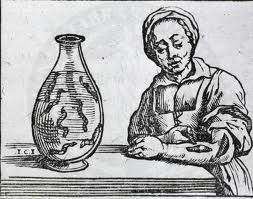Health
Is Your Child’s Therapy a Waste of Time?
If your child is getting mental health treatment, you may want a second opinion.
Posted May 15, 2014 Reviewed by Ekua Hagan
If your child had pneumonia, you would expect that you could visit any physician and get medical care proven to work. If your child’s pediatrician chose to use an old-fashioned treatment, like let’s say leeches, rather than a course of antibiotics or steroids, then you would probably confer with some friends, search the internet, and realize that you needed a second opinion.

Why don’t parents get a second opinion on the mental health care of their children?
Many psychological symptoms have consequences as devastating as medical ailments. Yet most parents don’t talk to their friends about their child’s mental health treatment, the information available on the Internet is awfully incomplete and confusing, and consequently, parents tend to agree to whatever their child’s therapist recommends.
The text below offers a few pointers to help you make informed decisions about your child’s mental health care. Parents need to make smart decisions because unfortunately, a large proportion of therapists are offering leeches to treat mental health care. In fact, there are several different mental health treatments available for different diagnoses that have been proven to work. But if parents don’t know what to ask for, or how to tell whether their child is getting appropriate treatment, then they may be wasting precious time and energy.
1. You should know what your child’s diagnosis is, and how it was determined.
Did you know that ADHD is the most over-diagnosed mental health disorder among youth? Almost half of kids on ADHD medication may not need it. Bipolar disorder also is widely over-diagnosed. In some cases, therapists conduct treatment with kids but do not assign any diagnosis at all; they may report that they are helping kids “work through their issues.”
What to look for: If your child was given a mental health diagnosis by a pediatrician or a school counselor, then it is probably incorrect and you may be wasting your time. A diagnosis should be the result of very thorough interviews and standardized tests conducted by a trained mental health professional. As the parent, you should have a tremendous amount of input in determining your child’s diagnosis; you should be completing checklists, answering interview questions, and perhaps even recording information at home to share with a mental health care provider before a diagnosis can be made accurately. For some mental health concerns, like ADHD for instance, your child’s teacher(s) also should complete checklists and/or record information about your child’s behavior at school before a diagnosis can be made accurately. Last, in many cases, your child may complete a few computerized tests that can measure brain processes relevant to a mental health disorder. If none of this has occurred, you may be getting a “leech."
2. What kinds of tests are appropriate to help learn about my child’s symptoms?
There are literally thousands of scientific studies conducted over many decades to determine what tests have the best chance of producing reliable and valid responses to make a mental health diagnosis. Many of the tests that are scientifically proven to work offer an opportunity to compare your child’s scores to a database of scores from hundreds of other children.
What to look for: If your mental health provider cannot explain to you what tests they have used and how interpreted your child’s scores, then you may be getting a “leech." If the diagnosis was made by someone who has “seen a lot of similar cases and can recognize this diagnosis based on their experience” then you may be getting a “leech."
Also – warning – some tests are very outdated and there is no scientific basis to suggest they work: beware! Everyone has heard of the Rorschach test – using people’s responses to inkblots to understand personality processes or psychological symptoms. Many people also know of “apperception tests” that use the stories people tell when shown pictures to determine personality processes or symptoms. Beware – these tests are leeches, particularly if they are the only test used to make a diagnosis. If your child’s diagnosis was made based on these instruments, especially if few other tests were also administered, then you definitely want a second opinion.
3. What kind of therapy is your child getting?
Is your child’s mental health provider seeing your child alone, or with you (i.e., the parents) present? How involved have you been in your child’s therapy? Do you know how the therapy works?
Did you know that for the majority of mental health issues, there are therapies proven to produce substantial improvement in just 6-12 weeks? Not all kids get better with these treatments in just 12 weeks, but most show at least some improvement. If your child has been in therapy for months, you don’t know what they are doing in therapy, and there has been no improvement, then you may be getting a “leech."
There now are lots of scientific studies to suggest that for many disorders a combination of medication and psychotherapy works better than either alone. But the psychotherapy has to be “evidence-based” psychotherapy. Evidence-based means that we know it can work from scientific studies, like antibiotics and steroids. For a list of evidence-based therapies for each specific child mental health issue, visit www.effectivechildtherapy.com. For almost all evidence-based therapies with children (i.e., under 12 years old) the therapy involves parents extensively. There is no scientific evidence to suggest that “playing with children to help them work through their issues” will work; that’s a “leech”.
Keep in mind that all kids are different. Play therapy may in fact work for your child or your neighbor’s child. There’s just no scientific evidence to suggest that works, so it is a risk. Evidence-based therapies are proven to work scientifically.
For adolescents (i.e., 12 years old and above), therapy likely will not have much parent involvement. However, your adolescent should be able to clearly tell you (although they may not want to) what is happening in therapy and whether they think it is working.
In general, science has proven that therapy does not work through magic. It does not seem to involve the unconscious and there should be no discussion of dreams or the libido. It is all fairly logical and concrete, meaning that as a parent you should be able to understand what the therapy is, how it is working, and what types of improvements you should be able to see. If you don’t understand these things about your child’s treatment, you may be getting a “leech."
4. How do I know if my child is getting better?
Is your child taking medication for a mental health issue? Is your child in therapy? If so, there should be something getting measured or tested regularly. In other words, before beginning the treatment (either meds or therapy) there should be a measurement taken of your child’s symptoms, and as discussed above that measurement should involve a specific score, perhaps one that can be compared to national norms. That measurement should be repeated every few weeks during treatment to see if the treatment is working. If no one has taken a measurement before and during treatment, you may be getting a “leech." No one should be put on medication without some assessment of whether the medication is working, and that assessment should involve more than a brief chat with the person who offered the prescription. All therapy should involve a periodic (i.e., perhaps every 2 months) assessment of how your child’s symptoms and a clear discussion of therapy goals with the parents. If you have not discussed specific treatment goals with your child’s therapist, you may be getting a “leech."
5. I think my child is getting a "leech!" What do I do?
Have a conversation with your child’s mental health care provider.
Ask:
- What is my child’s diagnosis?
- How did you diagnose my child?
- How are you treating my child, and how does the treatment work?
- How are you measuring my child’s progress in treatment?
You probably have asked, and gotten answers to these questions from your child’s physician each time your child has gotten ill. You should ask these questions about mental health issues too. Research the answers you get (check: www.effectivechildtherapy.com for info, for instance), talk with friends, and if you don’t believe your child is engaged in the best course of treatment, get a second opinion.
Copyright © 2014, Mitch Prinstein. All rights reserved.




